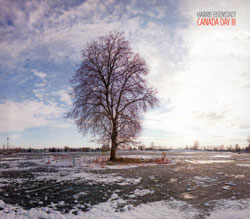
Released along with "Canada Day Octet", this new release presents drummer Eisenstadt's quintet with Nate Wooley (trumpet), Matt Bauder (sax), Chris Dingman (vibes) and Garth Stevenson (bass) in an album of great tunes and spirited playing.
Out of Stock
Quantity in Basket: None
Log In to use our Wish List
Shipping Weight: 3.00 units
Sample The Album:
Harris Eisenstadt-drums, composition
Nate Wooley-trumpet
Matt Bauder-tenor saxophone
Chris Dingman-vibraphone
Garth Stevenson-bass
Click an artist name above to see in-stock items for that artist.
UPC: 774355159620
Label: Songlines
Catalog ID: SGL 1596-2
Squidco Product Code: 16410
Format: CD
Condition: New
Released: 2012
Country: Canada
Packaging: Cardstock 3 page foldover
Recorded by Sean Kelly at Water Music, Hoboken, NJ on March 7th, 2012.
"Canada Day has been Eisenstadt's primary vehicle for integrating his divergent interests since 2007, often yielding a rich fusion of inside and outside concepts that remain palatable to mainstream sensibilities. A masterful tunesmith with a keen ear for intriguing compositional gambits, Eisenstadt infuses his writing for the group with a strong melodic undercurrent, relying on his bandmates to expand beyond notated material into vanguard territory, balancing conventional song-craft with unfettered abstraction." - Troy Collins, reviewing Canada Day II on Point of Departure
Canada Day, a band which now has two Canadian members (Garth Stevenson and Harris), returns with another record of great tunes and spirited playing, paired with the first release by Harris' Canada Day Octet on 482 Music. Incidentally, Harris is also the drummer on Songlines' other release this month, clarinetist François Houle's new international band (Francois Houle 5 + 1, Genera). Taken together, these three records show a composer, drummer and bandleader who really loves music in all its diversity and infuses that energy and a truly distinctive voice into everything he does.
And his band members respond in kind. Check out for example Nate Wooley's remarkable Harmon mute solo on "The Magician of Lublin," where he unexpectedly inserts lone open notes for contrast and punctuation. Or Matt Bauder's solo on "Nosey Parker," which seems to assay several vintage sax styles with both real reverence and a sly sort of parodistic humor. Throughout the record there are many instances of subtle surprise, crafty interplay and underlying complexities of tone that make for a richer listening experience. No doubt this finely-tuned level of engagement is partly the result of the band living with these pieces for a year and coming directly off the road to record. Says Harris: "I'm going for something visceral for sure, and not overly solemn or serious.... I do think that the fluidity of solo approaches comes from playing the pieces enough to not have to think about what might work. Most importantly, I want the musicians to be able to run with their instincts and be themselves no matter what."
The record's overall cohesiveness, its integrating jazz drive, is certainly a result of Harris' composing and approach to band-leading: "At the beginning of a book when we're learning the songs, I try not to fix too much until we hear how different parts of pieces fit and sound together. We sort of build road maps through trial and error. I of course ask for people's input and welcome it, as they're each composer/bandleaders with strong ideas. Having said that I do generally fix things myself. I think it helps when a bandleader is decisive about road maps, solo orders, set lists, assigning cues, etc."
Some thoughts on how he fits into the jazz drumming tradition:
"It has been a fantastic time to be part of the jazz drumming tradition, these almost-twenty years since I chose this life path. The generations or two older than me (if we're going in 10-year increments, say) brought all these other approaches into jazz drumming - people like Joey Baron, Tom Rainey, Jim Black, Mike Sarin, Kenny Wollesen have influenced me greatly. It has also become much more common to find very interesting drummer/composer/leaders who are not just the nominal heads of blowing sessions, but drummers with powerful composer/leader concepts - Gerry Hemingway and John Hollenbeck are examples that come to mind... Rock, textural free improvisation, African and Diaspora drum traditions and 20th century Western music are as important in my concept of jazz drum language as bebop and early jazz approaches... I've been studying Cuban Bata drumming for the last year, which keeps me humble and reminds me constantly how much percussion inspiration there is in the world!"
-Songlines
Artist Biographies
• Show Bio for Harris Eisenstadt "One of only a handful of drummers equally well known for his work as a composer, Brooklyn-based Harris Eisenstadt (b. Toronto, 1975) is among the most individual and prolific musicians of his generation. His resume includes studies with some of the most respected names in jazz and improvised music, West African and Afro-Cuban drumming, and performance credits in jazz, film, theater, poetry, dance, contemporary concert music and opera. Eisenstadt has performed all over the globe, received grants from organizations such as Meet The Composer, American Composers Forum, Canada Council for the Arts, and appeared on more than 60 recordings since 2000, including twenty as a leader. Recordings of his compositions often appear on the Songlines, Clean Feed, No Business, and 482 Music labels, and are consistently included on critics' best-of lists. Recent honors: Rising Star Percussion Percussion, Arranger, and Composer categories of the Downbeat international critics poll; Best Album, Drummer, Composer categories of the El Intruso international critics poll. His first work for orchestra, Palimpsest, was premiered by the American Composers Orchestra, as part of the Jazz Composers Orchestra Institute at Miller Theater, Columbia University (2011). Eisenstadt's second orchestral work, Four Songs, commissioned by the Brooklyn Conservatory Community Orchestra, was premiered at the Brooklyn Museum (2013). His first string quartet, Whatever Will Happen, That Will Also Be, was premiered as part of Eisenstadt's twelve-set residency at The Stone in NYC (2015). As a writer and radio producer, he has contributed to National Public Radio and AfroPop Worldwide. Eisenstadt is also an active AfroCuban batá drummer in New York and a longtime researcher in African and diaspora vernacular traditions. He has travelled to West Africa twice (Gambia, Senegal) to research Mandinka and Wolof music, and to Cuba twice (Matanzas, Havana) to research Afro-Cuban music." ^ Hide Bio for Harris Eisenstadt • Show Bio for Nate Wooley "Nate Wooley was born in 1974 in Clatskanie, Oregon, a town of 2,000 people in the timber country of the Pacific Northwestern corner of the U.S. He began playing trumpet professionally with his father, a big band saxophonist, at the age of 13. His time in Oregon, a place of relative quiet and slow time reference, instilled in Nate a musical aesthetic that has informed all of his music making for the past 20 years, but in no situation more than his solo trumpet performances. Nate moved to New York in 2001, and has since become one of the most in-demand trumpet players in the burgeoning Brooklyn jazz, improv, noise, and new music scenes. He has performed regularly with such icons as John Zorn, Anthony Braxton, Eliane Radigue, Ken Vandermark, Fred Frith, Evan Parker, and Yoshi Wada, as well as being a collaborator with some of the brightest lights of his generation like Chris Corsano, C. Spencer Yeh, Peter Evans, and Mary Halvorson. Wooley's solo playing has often been cited as being a part of an international revolution in improvised trumpet. Along with Peter Evans and Greg Kelley, Wooley is considered one of the leading lights of the American movement to redefine the physical boundaries of the horn, as well as demolishing the way trumpet is perceived in a historical context still overshadowed by Louis Armstrong. A combination of vocalization, extreme extended technique, noise and drone aesthetics, amplification and feedback, and compositional rigor has led one reviewer to call his solo recordings "exquisitely hostile". In the past three years, Wooley has been gathering international acclaim for his idiosyncratic trumpet language. Time Out New York has called him "an iconoclastic trumpeter", and Downbeat's Jazz Musician of the Year, Dave Douglas has said, "Nate Wooley is one of the most interesting and unusual trumpet players living today, and that is without hyperbole". His work has been featured at the SWR JazzNow stage at Donaueschingen, the WRO Media Arts Biennial in Poland, Kongsberg, North Sea, Music Unlimited, and Copenhagen Jazz Festivals, and the New York New Darmstadt Festivals. In 2011 he was an artist in residence at Issue Project Room in Brooklyn, NY and Cafe Oto in London, England. In 2013 he performed at the Walker Art Center as a featured solo artist. Nate is the curator of the Database of Recorded American Music (www.dramonline.org) and the editor-in-chief of their online quarterly journal Sound American (www.soundamerican.org) both of which are dedicated to broadening the definition of American music through their online presence and the physical distribution of music through Sound American Records. He also runs Pleasure of the Text which releases music by composers of experimental music at the beginnings of their careers in rough and ready mediums." ^ Hide Bio for Nate Wooley • Show Bio for Matt Bauder "Reedist and composer Matt Bauder draws upon jazz, free jazz, avant-garde, rock, and pop in his own music, as well as turning to literary and visual arts for inspiration. He studied at the University of North Texas and the University of Michigan where he earned a bachelor of fine arts in Jazz and Contemporary Improvisation. He then spent two active years on the vibrant Chicago music scene before attending Wesleyan University and receiving a masters' degree in composition under the guidance of the legendary Anthony Braxton and Alvin Lucier. Now based in Brooklyn, Bauder is the leader of Day in Pictures, a creative jazz quintet; Paper Gardens, a chamber quartet; White Blue Yellow and Clouds, which is experimental Doo-Wop and R&B, and he is part of the collaborative trio Memorize the Sky. He has performed with Anthony Braxton, Bill Dixon, Fred Anderson, Roscoe Mitchell, Jeff Parker, The SEM Ensemble, Ken Vandermark, and Phil Minton, among others. As a sideperson he plays and records with Rob Mazurek, Harris Eisenstadt, Taylor Ho Bynum, Jason Ajemian, Neil Michael Hagerty, His Name is Alive, and Bill Brovald. His recordings as a leader and co-leader on 482 Music, Clean Feed and Eye & Ear Records have received wide critical acclaim." ^ Hide Bio for Matt Bauder • Show Bio for Chris Dingman "Chris Dingman is a vibraphonist and composer known for his distinctive approach to the instrument: sonically rich and conceptually expansive, bringing listeners on a journey to a beautiful, transcendent place. He has been profiled by NPR, the New York Times, DRUM magazine and many other publications, and has received fellowships and grants from the Chamber Music America, the Doris Duke Foundation, New Music USA, and the Herbie Hancock Institute (formerly the Thelonious Monk Institute). Dingman has done significant work with legendary artists Herbie Hancock and Wayne Shorter as well as next generation visionaries such as Jen Shyu, Ambrose Akinmusire, Steve Lehman, and many others, performing around the world including India, Vietnam, and extensively in Europe and North America. Hailed by the New York Times as a "dazzling" soloist and a composer with a "fondness for airtight logic and burnished lyricism," the fluidity of his musical approach has earned him praise as "an extremely gifted composer, bandleader, and recording artist." (Jon Weber, NPR). Education While growing up in San Jose, California, Dingman began piano and percussion studies at an early age. He went on to attend Wesleyan University, where he received his B.A. with honors in music. While at Wesleyan, he studied intensively with vibraphonist Jay Hoggard, drummer Pheeroan AkLaff, composer/multi-instrumentalist Anthony Braxton, and mridangist David Nelson. During this time, he was heavily involved in the study of many of the world's musical cultures, including South Indian, West African, Korean, Afro-Cuban, and Brazilian music. In the summer of 2000, his studies brought him to Kerala, India to delve further into mridangam and South Indian classical music. In 2005, Dingman was one of only seven musicians selected by Herbie Hancock, Wayne Shorter, and Terence Blanchard to participate in the Thelonious Monk Institute of Jazz Performance at the University of Southern California (USC) in Los Angeles. At the Institute, he studied with Terence Blanchard, Ron Carter, Benny Golson, Jimmy Heath, Jerry Bergonzi, Wynton Marsalis, Jason Moran, Lewis Nash, Hal Crook, Stefan Harris, John Magnussen, Vince Mendoza, Russell Ferrante, and many others. He received his Master of Music degree from USC and the Monk Institute in 2007. During his time at the Monk Institute, Dingman had the opportunity to perform extensively with Herbie Hancock and Wayne Shorter. In November of 2005, they traveled with the Monk Institute ensemble on a U.S. State Department tour of Vietnam. The ensemble gave concerts and master classes in Hanoi and Ho Chi Minh City. In January of 2007, he traveled again with Hancock, Shorter, and the Monk Institute ensemble, this time to Mumbai, Calcutta, New Delhi, and Agra, India, where they performed for capacity crowds and presented clinics at the Ravi Shankar Institute in Delhi and St. John's School in Mumbai.Teaching In addition to performing, Chris is an active educator, working with students of all ages and levels for the past 15 years. His extensive teaching experience includes presenting master classes at conservatories and schools both nationally and internationally (including Miami-Dade College, Trinity College, Vancouver Jazz Festival, the National Conservatory of Vietnam, Staffeldsgate College in Oslo, Norway, and more), directing a summer music camp for students ages 11-18, leading jazz ensembles at the high school and middle school levels, and teaching group percussion classes for both children and adults." ^ Hide Bio for Chris Dingman
11/20/2024
Have a better biography or biography source? Please Contact Us so that we can update this biography.
11/20/2024
Have a better biography or biography source? Please Contact Us so that we can update this biography.
11/20/2024
Have a better biography or biography source? Please Contact Us so that we can update this biography.
11/20/2024
Have a better biography or biography source? Please Contact Us so that we can update this biography.
Track Listing:
1. Slow and Steady 3:50
2. Settled 8:23
3. A Whole New Amount of Interactivity 8:25
4. The Magician of Lublin 8:24
5. Song for Sara 6:37
6. Nosey Parker 6:58
7. Shuttle off this Mortal Coil 7:34
8. King of the Kutiriba 4:46
Improvised Music
Jazz
NY Downtown & Jazz/Improv
Nate Wooley
Staff Picks & Recommended Items
Quintet Recordings
Instant Rewards
Search for other titles on the label:
Songlines.


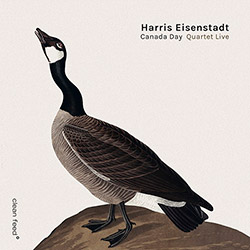
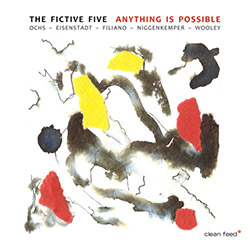


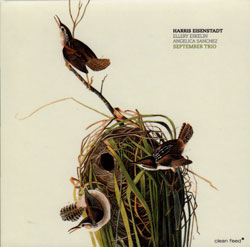
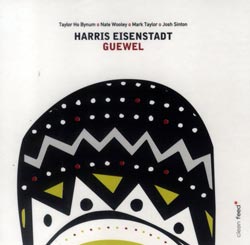



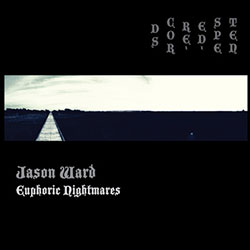



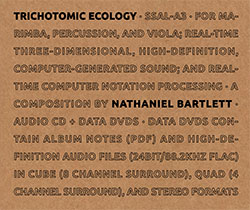
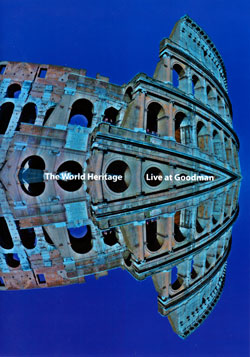

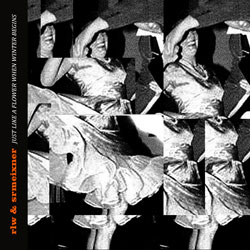
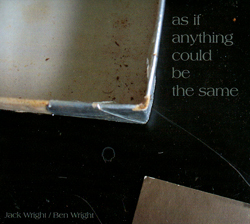










![Guy, Barry / Ken Vandermark: Occasional Poems [2 CDs]](https://www.teuthida.com/productImages/misc4/34849.jpg)
![Novoa / Carter / Mela Trio: Vol.1 [VINYL]](https://www.teuthida.com/productImages/misc4/35236.jpg)


![Elephant9 : Mythical River [VINYL]](https://www.teuthida.com/productImages/misc4/34624.jpg)
![Evans, Peter (Evans / Eldh / Black): Extra [VINYL]](https://www.teuthida.com/productImages/misc4/35279.jpg)

![McPhee, Joe: Straight Up, Without Wings [BOOK]](https://www.teuthida.com/productImages/misc4/35454.jpg)
![Jeck, Philip: rpm [2 CDs]](https://www.teuthida.com/productImages/misc4/35455.jpg)













![Barker / Parker / Irabagon: Bakunawa [VINYL]](https://www.teuthida.com/productImages/misc4/35533.jpg)
![Blaser, Samuel / Marc Ducret / Peter Bruun: Dark Was The Night, Cold Was The Ground [VINYL 10-inch]](https://www.teuthida.com/productImages/misc4/35492.jpg)








![Warren, Kenny (Warren / Hoffman / Ellman): Sweet World [VINYL]](https://www.teuthida.com/productImages/misc4/35451.jpg)




![Blake, Ran / Dave Knife Fabris: Live Amsterdam 2006, First Visit [CD + POSTCARDS]](https://www.teuthida.com/productImages/misc4/35275.jpg)













![DNS: Taking Big Bites Of The Khandas Three Cafes Deep [2 CDs]](https://www.teuthida.com/productImages/misc4/35334.jpg)




![Cleaver, Gerald: The Process [VINYL]](https://www.teuthida.com/productImages/misc4/34966.jpg)




![Alva Noto: HYbr:ID II [VINYL 2 LPs]](https://www.teuthida.com/productImages/misc4/35201.jpg)

![Baron, Derek / Luke Martin: Distinct and Concealed [CASSETTE + DOWNLOAD]](https://www.teuthida.com/productImages/misc4/35079.jpg)

![Lyle, Erica Dawn : Colonial Motels [CASSETTE + DOWNLOAD]](https://www.teuthida.com/productImages/misc4/35080.jpg)









![Sanna, Claudio: Compositori Sardi Contemporanei II [2 CDs]](https://www.teuthida.com/productImages/misc4/35317.jpg)







![Zurria, Manuel: Fame di Vento [3 CDs]](https://www.teuthida.com/productImages/misc4/35167.jpg)

![Granberg, Magnus / Nattens Inbrott / Skogen: Holde Traume, Kehret Wieder! [2 CDs]](https://www.teuthida.com/productImages/misc4/35038.jpg)
![Frey, Jurg: Outermost Melodie [2 CDs]](https://www.teuthida.com/productImages/misc4/35039.jpg)

![Pavone, Jessica: Reverse Bloom [VINYL]](https://www.teuthida.com/productImages/misc4/34895.jpg)




![Modney (Modney / Wooley / Gentile / Roberts / Pluta / Symthe / ...): Ascending Primes [2 CDs]](https://www.teuthida.com/productImages/misc4/34852.jpg)









![Elephant9 with Terje Rypdal: Catching Fire [VINYL 2 LPs]](https://www.teuthida.com/productImages/misc4/35355.jpg)
![Deerlady (Obomsawin, Mali / Magdalena Abrego): Greatest Hits [VINYL]](https://www.teuthida.com/productImages/misc4/34876.jpg)




![Haino, Keiji: Black Blues [2 CDs]](https://www.teuthida.com/productImages/misc4/35109.jpg)



![Surplus 1980: Illusion of Consistency [CD]](https://www.teuthida.com/productImages/misc4/35069.jpg)
![Staiano, Moe: Away Towards the Light [VINYL + DOWNLOAD]](https://www.teuthida.com/productImages/misc4/35037.jpg)



![Caveira (Gomes / Sousa / Abras / Ferrandini): Ficar Vivo [VINYL]](https://www.teuthida.com/productImages/misc4/34643.jpg)
![Gregg, J. J. / David Van Auken: Lunar Prairie [CD w/ DOWNLOAD]](https://www.teuthida.com/productImages/misc4/34611.jpg)

![Coultrain: Mundus [VINYL]](https://www.teuthida.com/productImages/misc4/32439.jpg)
![Mattin: Songbook #6 [VINYL]](https://www.teuthida.com/productImages/misc4/27317.jpg)
![Punkappella: Wake Up [7-inch VINYL]](https://www.teuthida.com/productImages/misc4/17519.jpg)
![Residents, The: WARNING: UNiNC.: Live And Experimental Recordings 1971-1972 [VINYL 2 LPs]](https://www.teuthida.com/productImages/misc4/31521.jpg)
![Coultrain: Phantasmagoria [VINYL]](https://www.teuthida.com/productImages/misc4/30142.jpg)
![Lennon, Sean Ono: Asterisms [VINYL]](https://www.teuthida.com/productImages/misc4/34517.jpg)

![Coley, Byron: Dating Tips for Touring Bands [VINYL]](https://www.teuthida.com/productImages/misc4/17906.jpg)

![Lost Kisses: My Life is Sad & Funny [DVD]](https://www.teuthida.com/productImages/misc4/lostKissesDVD.jpg)